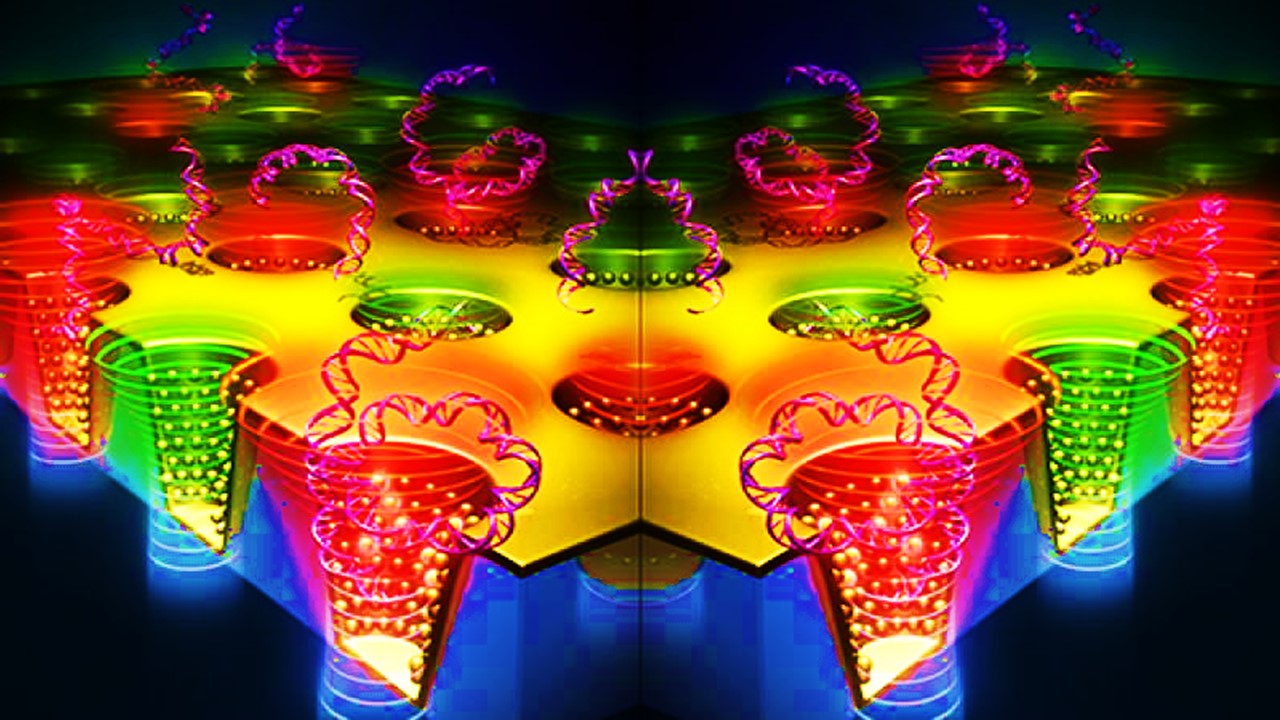Protein kinases, crucial enzymes involved in cell signal transduction, have emerged as therapeutic targets for various diseases, including cancer. Oncogenic kinases are known to be the cause of immunosuppression, and it has been demonstrated that blocking them can activate strong anti-tumor immune responses. The emergence of resistance and tumor recurrence, however, continue to be problems. Although immunotherapy has been remarkably effective in treating some cancer types, due to the ongoing immunosuppression in the tumor microenvironment, long-lasting responses are only seen in a small percentage of patients. As a result, it has become clear that a promising way to increase the clinical efficacy of current medicines is to both reduce immunosuppression by kinase inhibitors and unleash the therapeutic potential of tumoricidal immune cells.
Tyrosine Kinase Inhibitors: Unleashing Tumoricidal Immune Responses
Malfunctioning cell signaling pathways underlie the complicated disease known as cancer. A significant part in the start-up of tumorigenic signals is played by a family of enzymes known as tyrosine kinases. These enzymes function as switches that activate particular signaling pathways that support cell survival, growth, and proliferation. But tyrosine kinases are also involved in immunosuppression in the tumor microenvironment, which makes them appealing candidates for therapeutic intervention in addition to their function in augmenting cell proliferation.
The receptor tyrosine kinases (RTKs), a subset of tyrosine kinases, have received a lot of interest in the study of cancer. EGFR (epidermal growth factor receptor), ErbB2, and ErbB3 are a few examples of well-known targets in this group. Targeting these RTKs with small molecule inhibitors has been effective in subgroups of breast cancer and non-small cell lung cancer (NSCLC) patients. By blocking the activation of these receptors, immunosuppressive features of downstream signaling molecules are prevented. In turn, this suppression triggers strong anti-tumor immune reactions in the tumor microenvironment.
Broad-spectrum RTK inhibitors have also demonstrated potential in undoing immune suppression in some cancer types, in addition to the specific RTKs. For instance, the multi-targeted RTK inhibitor sunitinib, which blocks VEGFR, PDGFR, Ret, and Kit, is effective against renal cell carcinoma. Inhibiting STAT3 signaling, which is linked to immune suppression in the tumor microenvironment, is one of its modes of action. The same is true for Ron-selective kinase inhibitors, which have shown they can decrease lung metastasis in breast cancer patients by enhancing immune defenses against tumors.
Combination Strategies for Enhanced Immune Checkpoint Inhibition in Breast Cancer
Immune checkpoint drugs have significantly improved cancer treatment, especially those that target the PD-1/PD-L1 pathway. However, their effectiveness has been rather restricted, mostly seen in cancer forms with significant genetic instability and a microenvironment that is highly immune-responsive, sometimes known as “immunologically hot” tumors. In contrast, immune checkpoint inhibitors have only partially treated breast malignancies, particularly triple-negative breast cancer (TNBC) and HER2-positive breast cancer. These tumors often have low mutational burdens and low tumor-infiltrating lymphocyte (TIL) counts, which results in a microenvironment that is minimally immunogenic.
To overcome these challenges, ongoing clinical trials are actively exploring rational combinations of kinase inhibitors with immune checkpoint inhibitors in breast cancer subtypes with higher immunogenicity, such as TNBC and HER2-positive breast cancer. By combining these two therapeutic approaches, researchers aim to augment immunological responses and enhance the effectiveness of immune checkpoint inhibitors in these cancer types.
Finding immunomodulation-related biomarkers is the main goal of these clinical trials because they can assist inform future combination therapies. These biomarkers might give us important new understandings about how the immune system and kinase signaling pathways interact in breast cancer. Researchers can design combination therapy to elicit more potent and long-lasting anti-tumor immune responses in patients with TNBC and HER2-positive breast cancer by knowing how kinase inhibitors affect the tumor microenvironment and immune response.
Impact of Kinase Inhibitors on Immune Cells in the Tumor Microenvironment
Kinase inhibitors, which were once meant for attacking tumor cells, have since been found to have a wider range of effects on the tumor microenvironment, including direct control over immune cell signaling and activity. In terms of cancer treatment, this dual function offers both opportunities and difficulties. On one hand, kinase inhibitors might cause undesirable immune-related effects, as was the case with skin inflammation brought on by EGFR inhibitors’ off-target suppression of STK10. On the other hand, as shown by mTOR inhibitors, which reduce systemic inflammatory responses brought on by immune checkpoint inhibitors, they can also increase the sensitivity of immune-based therapies. This successfully reduces toxicity without reducing the beneficial effects on tumors of immune therapy.
The interaction between kinase inhibitors with the immune system brings up new therapeutic possibilities. However, in order to maximize their therapeutic synergy and prevent any potential immunosuppressive effects, it is essential to thoroughly explore these interactions. For instance, mTOR signaling regulates immune cell function in a complex way, having an effect on both NK cells and T cells. NK cell cytolytic activity is stimulated by mTORC1 signaling, whereas mTORC2 activity favors immunosuppressive NK cells. Furthermore, metabolic reprogramming results in the production of regulatory T cells, which depends on mTOR activity. To encourage beneficial immunomodulatory effects, particular kinase inhibitor selection, and timing must be carefully examined.
Researchers can create more focused combination methods by developing a thorough grasp of how kinase inhibitors affect immune cell communication and function. These strategies aim to improve the efficacy of immune-based medicines such as immune checkpoint inhibitors while maximizing the tumor-targeting potential of kinase inhibitors. In order to give patients a more targeted and efficient course of treatment, it is ultimately important to strike a balance between encouraging anti-tumor immune responses and avoiding unintended immunosuppression.
Careful analysis of the interactions between kinase inhibitors and immune cells may also reveal novel biomarkers for predicting patient responses to a combination of treatments. These biomarkers can aid in the identification of patients who can profit from particular kinase inhibitor-immunotherapy combinations, resulting in individualized treatment plans and enhanced clinical results.
Kinase Inhibitors Modulating Tumor-Intrinsic Antigen Presentation
In addition to having a direct effect on tumor cells, kinase inhibitors have also shown promise in the treatment of cancer thanks to their capacity to alter the immune system’s response to the disease. One important method they do is by affecting how MHC class I (major histocompatibility complex class I) antigens are presented by tumor cells. Cytotoxic T lymphocytes (CTLs) receive antigens produced from intracellular proteins from MHC class I molecules, which is a critical step in the immune response against infected or malignant cells.
Studies have shown that inhibition of particular kinases can cause an elevation of MHC class I expression in some cancer forms, including non-small cell lung cancer (NSCLC) and colon cancer. For instance, it has been demonstrated that the kinase inhibitor cabozantinib, which targets RET and MET, increases MHC class I expression in colon cancer cell lines. Similarly, inhibiting EGFR or HER2 in NSCLC or breast cancer may restore MHC class I expression, making the tumors more susceptible to immune identification and CTL destruction.
Kinase inhibitors’ enhanced induction of MHC class I expression may have significant effects on cancer immunotherapy. These inhibitors facilitate the activation of CTLs and the start of tumor-specific immune responses by improving the presentation of tumor-associated antigens. The option to combine kinase inhibitors with therapeutic cancer vaccines that are engineered to trigger immune responses against certain tumor antigens is presented by this. Kinase inhibitors may enhance the antigen presentation of tumor-specific epitopes by changing the peptide-MHC repertoire in tumor cells, enhancing the effectiveness of cancer vaccines.
It’s essential to comprehend how kinase inhibitors affect the range of tumor-associated antigens if you want to develop cancer immunotherapies that work. The most promising targets for therapeutic cancer vaccines can be found by studying the adjustments that kinase inhibitors make to the antigen presentation machinery. The potential for these vaccines to stimulate robust and targeted anti-tumor immune responses is increased by being able to capitalize on the modified MHC class I presentation.
Kinase Inhibitors and JAK/STAT-Mediated Tumor Immunity
The Janus kinase/signal transducer and activator of transcription (JAK/STAT) signaling pathway is a critical regulator of inflammatory responses and immune evasion in cancer. This pathway plays a pivotal role in mediating the effects of various cytokines and growth factors, both in tumor cells and immune cells within the tumor microenvironment. Among the members of the STAT family, STAT1 and STAT3 are particularly important in cancer development and immune responses.
In the development of cancer and immune evasion, STAT1 and STAT3 play complicated and occasionally conflicting functions. Type I and type II interferons trigger the IFN/STAT1 signaling pathway, which can have dual impacts on immune evasion and tumor suppression. On one hand, IFN/STAT1 signaling enhances antigen processing and presentation by tumor cells, causes cell cycle arrest, and death, and boosts anti-tumor responses. Additionally, it primes the activation of immune cell subsets that support anti-tumor immunity, such as cytotoxic T lymphocytes (CTLs) and natural killer (NK) cells.
On the other hand, persistent STAT1 expression in tumor cells can support tumor development and immune evasion. Chronic STAT1 activation can enhance the production of immunosuppressive mediators, such as PD-L1 and indoleamine 2,3-dioxygenase 1 (IDO1, which can decrease the immune response and shield tumor cells from immune surveillance. The effectiveness of immune checkpoint inhibitors, which prevent the interaction between PD-1 on immune cells and PD-L1 on tumor cells, so activating the immune response over cancer cells, may be limited by this immunosuppressive influence.
An appealing strategy for increasing the sensitivity of malignancies to immune checkpoint inhibitors is pharmacological manipulation of the JAK/STAT system. To fine-tune the immune response to cancer and circumvent immune evasion mechanisms, researchers are focusing on particular kinases within this pathway. Clinical trials are investigating JAK1/2 or STAT3 inhibitors, for instance, as possible boosters of anti-tumor immunity in a variety of cancer types.
The Path Forward for Kinase-Immunotherapy Combinations
Kinase inhibitors have shown promising potential in potentiating tumoricidal responses of immunotherapy, offering a multifaceted approach to address immunosuppression in the tumor microenvironment. While challenges persist, ongoing clinical trials and mechanistic studies hold the key to unlocking the full clinical benefits of kinase-inhibition-immunotherapy combinations, ultimately revolutionizing cancer treatment and providing hope for durable responses in patients with various cancer types.
Engr. Dex Marco Tiu Guibelondo, BS Pharm, RPh, BS CpE
Editor-in-Chief, PharmaFEATURES

Subscribe
to get our
LATEST NEWS
Related Posts

Molecular Biology & Biotechnology
Myosin’s Molecular Toggle: How Dimerization of the Globular Tail Domain Controls the Motor Function of Myo5a
Myo5a exists in either an inhibited, triangulated rest or an extended, motile activation, each conformation dictated by the interplay between the GTD and its surroundings.

Drug Discovery Biology
Unlocking GPCR Mysteries: How Surface Plasmon Resonance Fragment Screening Revolutionizes Drug Discovery for Membrane Proteins
Surface plasmon resonance has emerged as a cornerstone of fragment-based drug discovery, particularly for GPCRs.
Read More Articles
Designing Better Sugar Stoppers: Engineering Selective α-Glucosidase Inhibitors via Fragment-Based Dynamic Chemistry
One of the most pressing challenges in anti-diabetic therapy is reducing the unpleasant and often debilitating gastrointestinal side effects that accompany α-amylase inhibition.













